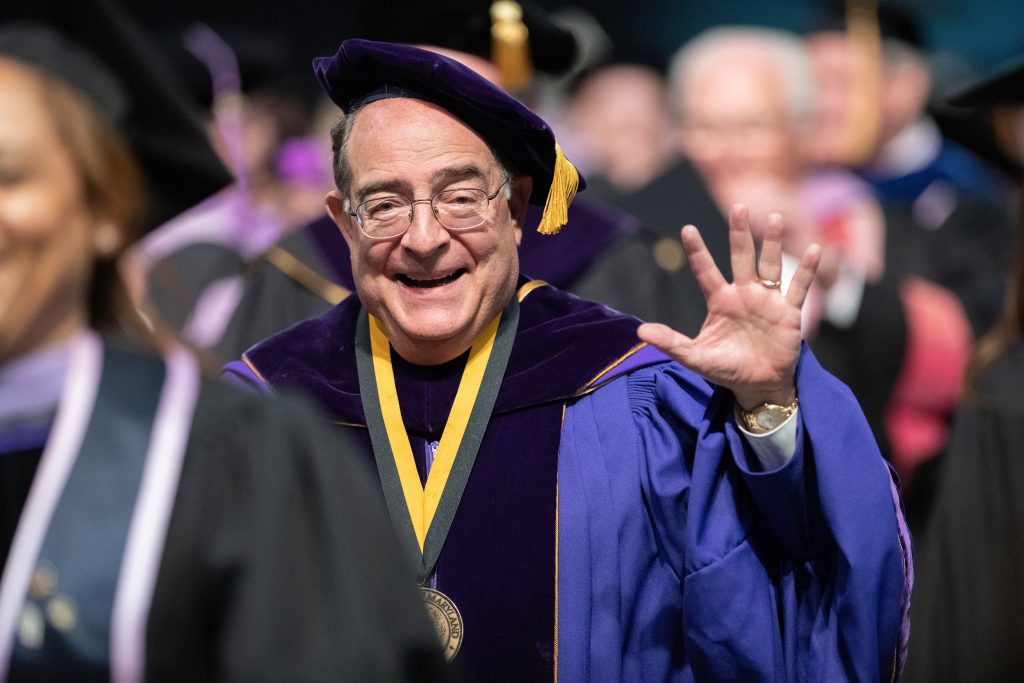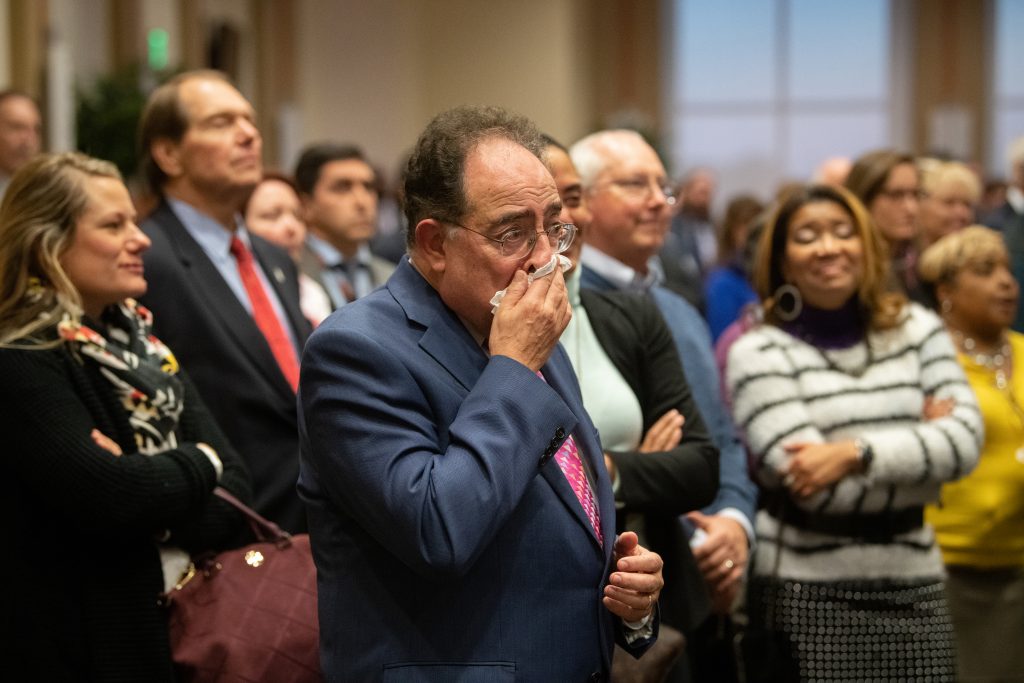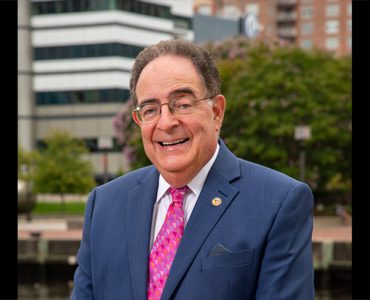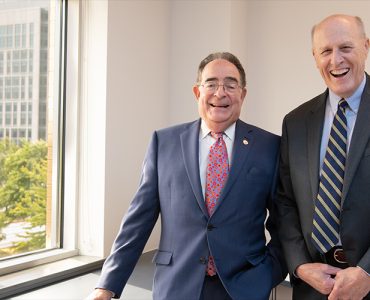
Over the summer, CATALYST magazine met with University System of Maryland (USM) Chancellor Jay A. Perman, MD, and asked him to reflect on his accomplishments during his nearly 10-year tenure as president of the University of Maryland, Baltimore (UMB) and his role leading the 12-university system, which he took the helm of in January 2020.
What was your favorite part about being UMB president?
My favorite part of the job — the most meaningful part of my job — was the privilege I had of working with students, faculty, and staff, who seem to live, every day, UMB’s mission: Improve the human condition and serve the public good.
What’s your favorite part about being USM chancellor?
I get the opportunity to see how higher education and scholarship in multiple fields of study empower people and contribute to all of us living better lives and enjoying a better world. There’s incredible power in our teaching, our learning, our research, our service. Taken together, we really can change the world. And we are — right now.
What was your greatest achievement at UMB?
When I was appointed president of UMB, I asked then-USM Chancellor Brit Kirwan and the Board of Regents what they wanted me to do. I was told to take seven distinguished schools and coalesce them into a great university. With the help and dedication of many, I think we accomplished that.
What do you hope students, faculty, and staff at UMB remember about your tenure at the University?
I hope they’ll remember the commitment we built around collaboration — collaboration among our faculty, our disciplines, our schools; collaboration with other institutions. For instance, I see how much the MPower partnership has benefited UMB and College Park — how it’s opened up new opportunities for students, new areas for scholarly exploration, new paths for funding and growth. That’s the thing about collaboration; its benefits compound and, ultimately, reach far beyond the individual actors involved.
Is there anything at UMB that you didn’t accomplish that you regret and why?
I was really committed to opening a child care center on campus for our employees and students. I knew easier access to child care would benefit work-life balance and relieve some of the stress that working/studying parents feel every day. It didn’t happen during my tenure, but I hear there’s progress being made on child care now, and for that I’m really grateful.

When you think back on your time at UMB in 10 or 15 years, what do you think you’ll remember?
I’ll always remember an employee stepping up to a microphone during a town hall — it was when legislation introduced in the General Assembly would have merged UMB and College Park. The employee said so passionately, “UMB has heart!” I saw tears in her eyes, and in the eyes of colleagues all around her in that packed room.
That stays with me. I’ll always remember that. Because UMB does have heart. Boy, does it!
When you speak to students around USM institutions, is there one issue they worry about the most?
Mental health has long been a concern among students. But the pandemic made it much, much worse. Our students were grieving for loved ones, they became caregivers, they lost jobs or had their hours cut, and they didn’t know how they’d afford rent and food, let alone tuition. Obviously, it’s impacted every aspect of their lives, and they’re looking to us for support.
And what is USM doing to address it?
The mental health crisis isn’t over — it probably won’t ever be. Students are still struggling, still suffering. So we’re highly focused on innovating and expanding the mental health and support services we make available to students — and really to all of us in the USM family. It’s a collective effort that all of our universities are engaged in.
Why did you think it was important to have UMB become more involved in the West Baltimore community?
Very simple. West Baltimore isn’t the neighborhood across the street from campus. It’s our neighborhood; it’s our community. How do you justify not being involved in your own community? It’s our obligation and our privilege.
What kind of emotions did you feel when the first cohort of UMB CURE Scholars graduated in May?
I cried — tears of joy!



